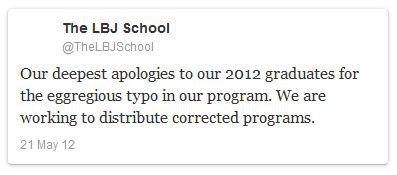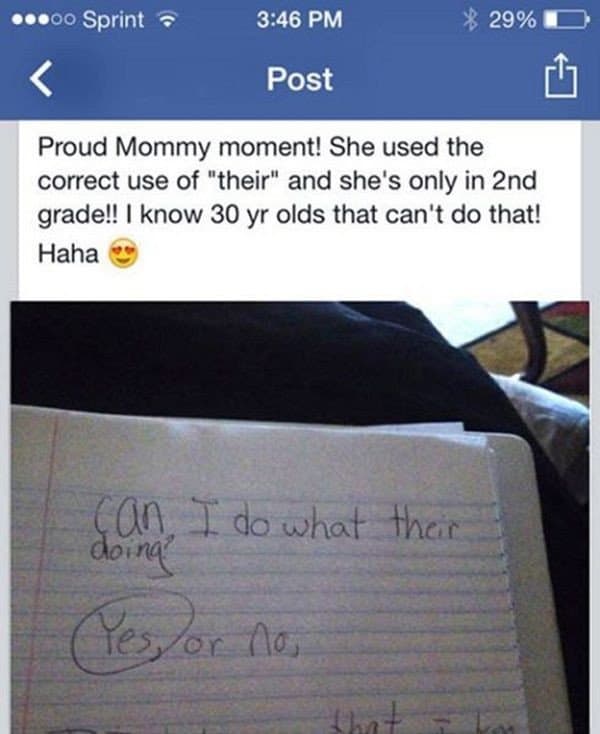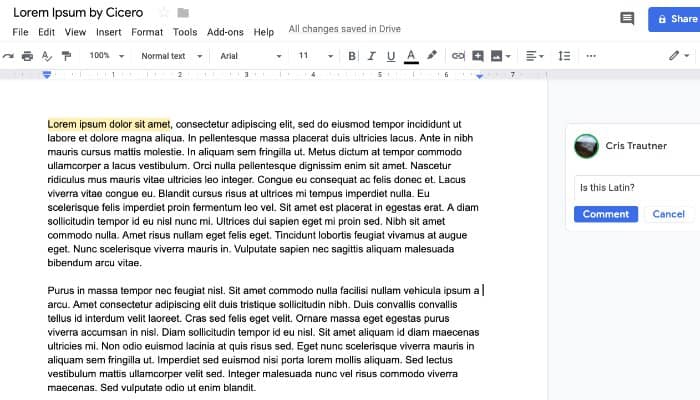Content marketers talk a lot about authority and credibility. We talk about using the written content on your website and blog to build your authority and reputation, to position yourself as an expert, and to develop trust in your target audience. This is “selling without selling,” and it will help you grow your business by providing more qualified leads and boosting your SEO. But we don’t talk about something equally important: editing.
As much as we talk about the writing—employing the right keywords, using frequently asked questions as ideas for blog posts, emphasizing education over promotion—we don’t talk often enough about making sure that what you’re writing is also edited. Because the best way to destroy your credibility is through bad writing.
Incorrect spelling, bad grammar, misused punctuation, and poor logic will undermine your authority quickly, demolishing the hard work you’ve put into building your reputation.
Is Bad Writing So Wrong?
Now, you’re probably thinking I’m overemphasizing the bad here. People make typos all the time, you say, and it doesn’t hurt their reputations that much. That’s potentially true. But how do you feel about someone when you read an email and they make a huge spelling error? What if it’s someone you’ve not met in person and your only contact is through a screen on your phone or computer? Do you really want that faint sense of unease to color your relationship with your readers? The unease stems from the idea that if this person can make a small mistake in this email, are they trustworthy in anything they do? Do they not pay attention to details?
If you don’t already have a solid track record with your readers, your bad writing—as unintentional as it may be—will affect how they perceive you. If your readers know you, they’ll forgive the random error—but they’ll likely not forget it.
Of course, we’re only human, and humans are mistaking-making machines. But if you could avoid that error, wouldn’t you do so?
Examples of Editing Errors
Below are a few examples of very public editing errors that might make you laugh but should also make you think about how carefully you edit your own writing.








Editing Tips
Here’s the thing, and I know you’ve heard it before: You can’t edit your own writing. Well, you can, but you can’t edit it well. I can’t emphasize enough that a professional editor will do wonders for you. I also understand that not everyone can have a professional editor review their work, so here are a few editing tips to help ensure your writing is solid.
1. Don’t rely on autocorrect or online editing tools.
While it’s nice when Word corrects a typo and Grammarly highlights an incorrect preposition, they are not always right, and you shouldn’t rely on them for your editing. I’ve had a few clients over the years review their edited pieces and then send what they thought were helpful emails, listing all the items that Word had highlighted as wrong (but which were perfectly OK). Remember all the online screenshots you’ve seen of what happens when someone allows autocorrect to have its way with a text or email? You know what you mean. Don’t let your writing be hacked by the algorithm.
2. Step away.
One of the best ways I’ve found to better writing is to step away from my computer and do something else for a while, at least a few hours, if not a few days. It clears your mind and gives you the opportunity to see your writing with fresh eyes. It’s amazing how editing errors, like typos and weak logic, will jump right out at you when you come back to your writing after a break.
Rereading reveals rubbish and redundance. —Duane Alan Hahn
3. Understand your words.
If you don’t know a word’s definition and connotation, don’t use it. The definition, or the exact meaning of a word, may not completely concur with the connotation, which is the idea or feeling a word invokes in addition to its literal or primary meaning. I encourage you to increase your vocabulary, but be careful when using a word you aren’t truly familiar with—sometimes the result is funny, but mostly it’s just embarrassing.
4. Switch modes.
When you’re writing, you’re in the flow, and the best thing to do is to go with it. When you feel like you’re at or near the final draft, go back and reread your writing one more time. Just read it. You’ve switched from writer mode to reader mode, and you’ll find errors you missed before. (This is a trick I learned in my early days as a copyeditor.)
5. Eschew repetitiousness and use more synonyms.
We all have favorite words and phrasings we fall back on regularly in our writing. You may not notice, but your readers will. Scan your writing for repeated words and phrases. If the repeats live too close together, such as in the same sentence or paragraph, stir things up by using an uncommon synonym or a different turn of phrase. Make sure that your replacement words carry the same meaning as the ones you’re replacing.
I’m not a very good writer, but I’m an excellent rewriter. —James Michener
Writing is a skill, and like all skills, it requires practice to improve. Follow these simple tips and you’ll be a better writer faster—and save your reputation in the process.
Want to keep up with our blog? Sign up to get an email notification when we publish new posts.


